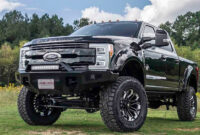Mini Trucks For Sale In Texas: Your Comprehensive Guide to These Versatile Workhorses sale.truckstrend.com
Texas, a state synonymous with vast landscapes, sprawling ranches, and a relentless work ethic, is increasingly discovering the unassuming power and versatility of mini trucks. These compact, yet incredibly capable vehicles, often originating from Japan as "Kei trucks," are carving out a significant niche among Texans seeking efficient, cost-effective, and adaptable transportation solutions. Far from being mere novelties, mini trucks are proving to be indispensable tools for everything from farm work and property maintenance to urban deliveries and recreational pursuits.
This comprehensive guide will delve deep into the world of mini trucks for sale in Texas, exploring what makes them so popular, navigating the crucial legal landscape, detailing where to find them, and offering essential advice for a smart purchase. Whether you’re a rancher looking for a nimble utility vehicle, a small business owner needing efficient transport, or an enthusiast seeking a unique ride, understanding the nuances of the Texas mini truck market is key.
Mini Trucks For Sale In Texas: Your Comprehensive Guide to These Versatile Workhorses
What Exactly Are Mini Trucks?
At their core, mini trucks are compact, light-duty utility vehicles designed for efficiency and maneuverability. The most common type found in the U.S. market, particularly in Texas, are Japanese Kei trucks. "Kei" (pronounced "kay") refers to a specific class of vehicles in Japan designed to be highly fuel-efficient and compact, enjoying tax and insurance benefits.
These vehicles are typically powered by small, fuel-efficient engines, often 660cc (0.66 liters), and come in various configurations:
- Standard Cab Pickups: The most common, featuring a small cab and a flatbed, often with fold-down sides for easy loading.
- Dump Trucks: Equipped with hydraulic dump beds, ideal for hauling soil, gravel, or debris.
- Van Bodies: Enclosed versions suitable for deliveries or secure transport.
- Specialty Vehicles: Less common but available, including scissor lifts, refrigerated units, and even small fire trucks.

Despite their diminutive size, mini trucks are surprisingly robust. Many come standard with 4×4 capability, making them excellent off-roaders for navigating rough terrain common on Texas ranches and farms. Their tight turning radius and narrow profile allow them to access areas larger trucks simply cannot.
Why Are Mini Trucks So Popular in Texas?
The appeal of mini trucks in the Lone Star State is multi-faceted, aligning perfectly with the practical needs and independent spirit of Texans.
- Cost-Effectiveness: Compared to traditional full-size pickups or ATVs/UTVs, mini trucks are significantly more affordable to purchase, insure, and operate. Their excellent fuel economy (often 30-50 MPG) translates to substantial savings at the pump, a crucial factor in a state where distances can be vast.
- Versatility and Utility: From hauling feed and tools on a farm to transporting hunting gear, managing a sprawling property, or even serving as a highly visible, quirky promotional vehicle for a small business, mini trucks excel. The available 4×4 drivetrains make them invaluable for navigating muddy fields, rocky trails, or sandy paths.
- Maneuverability: Their compact size allows them to navigate tight spaces, narrow trails, and crowded urban environments with ease. This is particularly beneficial for property owners with intricate layouts or businesses operating in congested areas.
- Reliability and Durability: Japanese engineering is renowned for its reliability. These vehicles are built to last, often featuring robust drivetrains and simple mechanics that are relatively easy to maintain. Many mini trucks imported into Texas have decades of reliable service in Japan under their belts.
- Unique Appeal: Beyond their utility, mini trucks possess a certain charm and uniqueness that stands out. They attract attention, spark conversations, and offer a distinct alternative to mainstream vehicles.
Navigating the Legalities and Registration in Texas
This is arguably the most critical section for anyone considering a mini truck in Texas. The legal status of mini trucks for on-road use can be complex and is often a source of confusion. Texas law, like many states, has specific regulations regarding these imported vehicles.
Key Points for Texas Registration:
- Federal Importation Rules: Most mini trucks in Texas are imported under the 25-year rule, meaning they are at least 25 years old and thus exempt from federal motor vehicle safety standards (FMVSS). Younger mini trucks (under 25 years old) are generally not street legal and are restricted to off-road use unless they meet specific federal requirements.
- Texas State Law (HB 1735): In 2011, Texas passed House Bill 1735, which specifically addresses mini trucks. This law defines a "mini-truck" as a foreign-manufactured vehicle with four wheels, a gross vehicle weight rating of less than 3,000 pounds, and an engine displacement of 1,000 cubic centimeters or less.
- On-Road Restrictions: Crucially, HB 1735 generally restricts mini trucks from operating on public roads in Texas if they are not compliant with federal safety standards. This means that most imported Kei trucks (which are exempt from FMVSS due to age) cannot be legally registered for unrestricted on-road use on public highways or streets where the speed limit is over 35 mph.
- Exceptions and Workarounds:
- Off-Road Use: They are perfectly legal for off-road use on private property (ranches, farms, hunting leases) or designated off-road trails.
- Neighborhood Electric Vehicle (NEV) or Low-Speed Vehicle (LSV) Conversion: Some mini trucks can potentially be registered as LSVs or NEVs if they meet specific criteria, which often include a maximum speed of 25 mph, seatbelts, headlights, taillights, turn signals, mirrors, and a VIN. However, even as an LSV, they are restricted to roads with speed limits typically 35 mph or less.
- "Farm Use" or "Utility Vehicle" Registration: In some limited cases, and depending on local interpretations, vehicles primarily used for agricultural purposes on specific types of roads might have different allowances. However, this is not a general street-legal solution.
- Plated for Out-of-State Use (Rare): A very small number of mini trucks might be legally plated in states with more lenient mini truck laws, but this does not automatically confer legality in Texas.
- Verification is Key: Before purchasing, always verify the specific mini truck’s legal status with the Texas Department of Motor Vehicles (TxDMV) or a reputable mini truck dealer/importer who is knowledgeable about Texas laws. Do not rely solely on a seller’s word. Ask for documentation proving its legal status for your intended use.
Types of Mini Trucks Available
The diversity of mini trucks on the Texas market is impressive, catering to a wide range of needs:
- Manufacturers: The dominant brands are Japanese:
- Daihatsu Hijet: Known for reliability and often available with a "jumbo cab" for more interior space.
- Suzuki Carry: Another popular and robust option.
- Honda Acty: Often praised for its smooth ride and efficient engine.
- Subaru Sambar: Unique with a rear-mounted engine, offering a different driving feel.
- Mitsubishi Minicab: A dependable workhorse.
- Features and Configurations:
- 2WD vs. 4WD: While 2WD models are available and cheaper, 4×4 is highly recommended for Texas terrain.
- Manual vs. Automatic Transmission: Most are manual (5-speed), but automatics are available, especially in newer models.
- Dump Beds: Hydraulic dump options significantly enhance utility for landscaping, construction, or farm work.
- Scissor Lifts/Crane Attachments: Less common but highly specialized for certain applications.
- Enclosed Vans/Boxes: Ideal for secure transport or mobile workshops.
- Air Conditioning (AC): A highly desirable feature in Texas’s hot climate. Many newer models (post-1990s) have AC.
- Power Steering/Windows: More common in later models, adding to comfort.
Where to Find Mini Trucks For Sale in Texas
The market for mini trucks in Texas is growing, offering several avenues for potential buyers:
- Specialized Importers/Dealers: These businesses focus specifically on importing and selling mini trucks. They often handle the complex import paperwork, can ensure the vehicle meets the 25-year rule, and might offer some level of warranty or pre-sale inspection. They are typically the most knowledgeable about legalities.
- Online Marketplaces:
- Facebook Marketplace: A very active platform where individuals and small dealers list mini trucks. Be prepared for a wide range of conditions and seller knowledge.
- Craigslist: Similar to Facebook Marketplace, offering local listings.
- eBay Motors: Features listings from across the country, including some Texas-based sellers.
- Dedicated Mini Truck Websites: Several national and regional websites specialize in mini truck sales.
- Local Classifieds & Word of Mouth: Check local newspapers or community boards, especially in rural areas. Ranchers and farmers often sell their used mini trucks directly.
- Auctions: Government surplus auctions or specialized vehicle auctions might occasionally feature mini trucks. This requires more expertise to assess vehicle condition on the fly.
Key Considerations When Buying a Mini Truck
A smart purchase requires careful evaluation. Here’s what to look for:
- Condition and Rust: This is paramount. Look underneath for significant rust on the frame, suspension components, and bed. Surface rust is common but avoid excessive rot. Check the cab for water leaks.
- Engine and Drivetrain:
- Listen to the engine: Any knocking, excessive smoke, or unusual noises?
- Check fluids: Oil, coolant, transmission fluid levels and condition.
- Test 4×4: Engage 4WD and drive in a safe area to ensure it works smoothly.
- Transmission: Smooth shifts in manual, no slipping in automatic.
- Mileage: While Japanese vehicles are durable, higher mileage (over 100,000 km or ~60,000 miles) can indicate more wear and tear. However, don’t let high mileage alone deter you if maintenance records are good.
- Tires and Suspension: Check tire wear and condition. Test the suspension for excessive bounce or clunking noises.
- Brakes: Ensure they feel firm and responsive.
- Electricals: Test all lights, wipers, horn, radio, and especially the AC if equipped.
- Import Documentation: Verify the vehicle’s title, customs paperwork, and proof of legal importation (e.g., CBP Form 7501). This is crucial for any potential registration.
- Parts Availability: While many parts are interchangeable across models, some specific components might be harder to find. Research common wear items and their availability.
- Test Drive: Always test drive the vehicle. Pay attention to steering, braking, acceleration, and any unusual noises or vibrations.
The Buying Process: A Step-by-Step Guide
- Define Your Needs and Budget: What will you use the mini truck for? How much are you willing to spend? This helps narrow your search.
- Research Legality: Understand the Texas laws before you start looking. Decide if off-road use is sufficient or if you’re exploring LSV conversion.
- Find Sellers: Use the resources listed above (importers, online marketplaces).
- Initial Contact: Ask key questions about the vehicle’s condition, history, and most importantly, its legal documentation for Texas.
- Inspect the Vehicle: If possible, inspect it in person. Bring a knowledgeable friend or even a mechanic if you’re unsure.
- Negotiate Price: Be prepared to haggle, especially with private sellers.
- Paperwork:
- Bill of Sale: Ensure it includes vehicle details (VIN, make, model, year), sale price, and buyer/seller information.
- Title/Import Documents: Obtain the original Japanese export certificate (often translated), customs clearance forms, and any U.S. titles if it’s already been titled here.
- Payment: Use a secure method like a cashier’s check or bank transfer. Avoid large cash payments unless you’re very comfortable with the seller.
- Transportation: Plan how you’ll get the mini truck home. Many are small enough to fit on a standard utility trailer.
- Registration (if applicable): If you believe the vehicle qualifies for any form of Texas registration (e.g., LSV), head to your local county tax assessor-collector’s office with all your paperwork. Be prepared for potential hurdles and be persistent.
Maintaining Your Mini Truck
Mini trucks are generally simple to maintain, similar to older cars. Regular oil changes, fluid checks, filter replacements, and tire rotations are crucial. Parts can sometimes be sourced from specialized mini truck parts suppliers online, or through general auto parts stores for common components (e.g., spark plugs, belts, some filters). Finding mechanics familiar with these specific Japanese engines might require some searching, but many general mechanics can handle basic service.
Mini Truck For Sale In Texas: Representative Price Guide
Prices for mini trucks in Texas can vary significantly based on year, make, model, condition, mileage, features (4×4, AC, dump bed), and whether they are purchased from a private seller or a specialized importer. The table below provides a representative range for common models.
| Make/Model (Example Year) | Condition | Key Features | Approximate Price Range (USD) | Notes |
|---|---|---|---|---|
| Suzuki Carry (1990-1998) | Fair – Good | 2WD/4WD, Manual, No AC | $3,500 – $6,500 | Good entry-level, often basic. |
| Daihatsu Hijet (1990-1998) | Good – Very Good | 2WD/4WD, Manual, Optional AC | $4,000 – $7,500 | Reliable workhorse, sometimes with Jumbo Cab. |
| Honda Acty (1990-1998) | Good – Very Good | 2WD/4WD, Manual, Optional AC | $4,500 – $8,000 | Known for smooth ride, mid-engine design. |
| Mitsubishi Minicab (1990-1998) | Good | 2WD/4WD, Manual, Optional AC | $3,800 – $7,000 | Solid, dependable choice. |
| Subaru Sambar (1990-1998) | Good – Excellent | 2WD/4WD, Manual, Rear Engine, Optional AC | $5,000 – $8,500 | Unique design, often with better ride comfort. |
| Any Make/Model (1999-2005) | Very Good | 4WD, AC, Power Steering | $7,000 – $12,000+ | Newer imports, more features, higher price due to age. |
| Any Make/Model (Specialty/Dump) | Varies | Dump Bed, Scissor Lift, Enclosed Van, etc. | $8,000 – $15,000+ | Highly specialized, condition and features drive price. |
Factors Influencing Price:
- Age: Older (closer to 25 years old) tend to be cheaper. Newer models (still subject to the 25-year rule) command higher prices due to fewer miles and more features.
- Mileage: Lower mileage typically means a higher price.
- Condition: Excellent cosmetic and mechanical condition will fetch a premium.
- Features: 4×4, Air Conditioning, Power Steering, Automatic Transmission, Dump Bed, and other specialty features significantly increase the price.
- Seller Type: Importers/dealers often charge more than private sellers but may offer pre-inspection, cleaning, and sometimes a limited warranty or help with paperwork.
Frequently Asked Questions (FAQ) about Mini Trucks in Texas
Q1: Are mini trucks street legal in Texas?
A1: Generally, no, not for unrestricted public road use on roads with speed limits over 35 mph. Texas law (HB 1735) restricts mini trucks not compliant with federal safety standards from operating on public highways. Most imported Kei trucks are exempt from these standards due to being over 25 years old. They are legal for off-road use on private property. Some may qualify as Low-Speed Vehicles (LSVs) for limited public road use (typically 35 mph or less) if they meet specific safety requirements.
Q2: Do I need a special license to drive a mini truck in Texas?
A2: If you manage to register it for on-road use (e.g., as an LSV), a standard Class C driver’s license is typically sufficient. For off-road use on private property, no special license is required.
Q3: What kind of fuel do mini trucks use?
A3: Most mini trucks use regular unleaded gasoline. Their small engines are very fuel-efficient.
Q4: Are parts readily available for mini trucks?
A4: Yes, parts are generally available, but you might need to order them online from specialized mini truck parts suppliers or importers. Common wear items can sometimes be cross-referenced with domestic parts. It’s less like walking into a local auto parts store for every item and more about planning ahead.
Q5: Can mini trucks tow?
A5: While they are capable of light towing (e.g., a small utility trailer), their towing capacity is limited due to their small engines and light frames. Always consult the manufacturer’s specifications (if available) and exercise caution. They are primarily designed for hauling in their beds.
Q6: What is the typical lifespan of a mini truck?
A6: With proper maintenance, mini trucks are incredibly durable. It’s not uncommon to see them operating well beyond 100,000 miles (160,000 km) and even up to 200,000 miles or more, especially in a less demanding utility role.
Q7: Are mini trucks good for highway driving?
A7: No, they are not designed for highway driving. Their top speeds are typically around 50-65 mph, making them unsafe and inefficient for sustained highway speeds. They excel in off-road, farm, ranch, or low-speed urban environments.
Conclusion
Mini trucks for sale in Texas represent a unique and increasingly popular solution for a wide array of needs, from agricultural utility to recreational enjoyment. Their blend of affordability, fuel efficiency, versatility, and compact size makes them an attractive alternative to larger, more expensive vehicles. However, prospective buyers must arm themselves with knowledge, particularly regarding the specific legalities of on-road use in Texas.
By understanding the types of mini trucks available, knowing where to find reputable sellers, and meticulously inspecting any potential purchase, Texans can confidently acquire a reliable and invaluable workhorse. While navigating the legal landscape requires diligence, the practical benefits and sheer utility of these mini powerhouses make the effort worthwhile for those seeking a smart, cost-effective solution in the vast and varied terrain of the Lone Star State.



